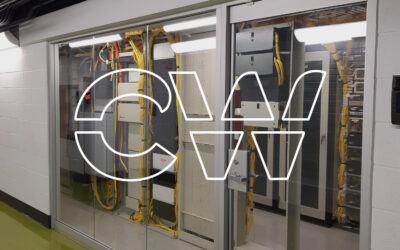The future of carrier hotels is expected to continue evolving in several key areas. Here are some potential trends and advancements that could shape the future of carrier hotels.
Increased demand and growth:
With the exponential growth of data and the increasing reliance on cloud services, the demand for carrier hotels is likely to continue rising. The need for robust infrastructure to support data storage, processing, and interconnectivity will drive the expansion and construction of more carrier hotels worldwide.
Edge computing integration:
As edge computing gains prominence, carrier hotels may play a crucial role in supporting distributed computing and reducing latency. By strategically locating carrier hotels closer to the network edge, they can facilitate faster data processing and enable real-time applications in areas like Internet of Things (IoT), autonomous vehicles, and smart cities.
Energy efficiency and sustainability:
Environmental concerns and the pursuit of energy efficiency will influence the design and operation of carrier hotels. Future data centers may adopt advanced cooling technologies, renewable energy sources, and energy-efficient equipment to minimize their carbon footprint and reduce energy costs.
Enhanced security measures:
With the increasing frequency and sophistication of cyber threats, carrier hotels will focus on bolstering their security measures. This may involve the implementation of advanced encryption, biometric access controls, strict authentication protocols, and comprehensive monitoring systems to safeguard the integrity and confidentiality of data.

Hybrid and multi-cloud environments:
Many organizations are adopting hybrid and multi-cloud strategies to optimize their IT infrastructure. Carrier hotels can serve as a central hub for interconnecting different cloud providers, offering high-speed, low-latency connections and enabling seamless data transfers between various cloud environments.
5G integration:
The widespread deployment of 5G networks will have a significant impact on carrier hotels. These facilities will likely evolve to accommodate the increased bandwidth demands, low-latency requirements, and massive data processing capabilities associated with 5G technology. Carrier hotels may provide the necessary infrastructure for 5G network deployments, including edge caching and distribution points.
Modular and scalable designs:
To adapt to changing requirements and accommodate future growth, carrier hotels may adopt modular and scalable designs. This approach allows for flexible expansion, efficient space utilization, and easier maintenance and upgrades, ensuring the facility can keep up with evolving technological demands.
Advanced data analytics and AI integration:
Carrier hotels may leverage advanced data analytics and artificial intelligence (AI) technologies to optimize their operations. AI can help automate and streamline processes, predict and prevent downtime, improve energy efficiency, and enhance overall performance and reliability.



